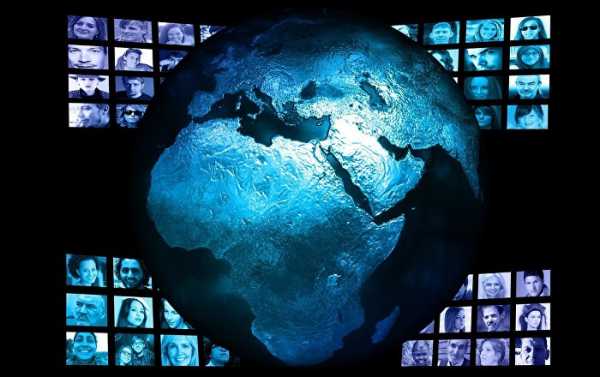
The total number of COVID-19 infections surpassed one million on Friday, with nearly 54,000 people succumbing to virus-related complications and billions more at risk of losing their jobs and livelihoods as the world economy grinds to a halt. This week, the United Nations characterized the pandemic as the biggest security challenge since WWII.
In the space of weeks, the coronavirus crisis has accelerated technological and economic trends and profound changes in people’s lifestyles which weren’t expected to take place for a decade or more, Tsinghua University professor Zhen Yang believes.
In an op-ed in the Chinese edition of The Global Times newspaper, Dr. Zhen recalls that while tourism and many traditional jobs have suffered from the crisis, the internet sector is booming, as are radically advanced technologies.
“Industries such as robotics, artificial intelligence, autonomous ecommerce, drones, online conferencing, and image recognition technology” have enjoyed a surge in demand, Zhen notes, adding that if sectors such as robotics, remote offices and 3D printing continue to develop at their current pace, global manufacturing supply chains may no longer depend as much on transnational ties.

Containers are loaded onto a cargo ship at the Tianjin port in China
At the same time, the professor explains, COVID-19 has sped up dramatic changes in society, including the worrying idea of the future trend of a ‘contact-free life’, or “the extension of machine intelligence to human capabilities.”
Zhen warns that as robots are assigned to replace people in more and more professions over time, entire strata of human beings unable to adapt to produce new value may be left with only minimal subsistence allowances.

A Japanese-built human-controlled robot. Japan leads the world in robotics development.
In addition, he points out, in China, the amount of time people spend online has effectively doubled amid the pandemic, increasing from an average of four to eight hours per day. This should have taken at least a decade to transpire. Because of coronavirus, people have quickly switched to dependence on a virtual reality, with even the ordinarily technology-resistant elderly becoming plugged in.

A large sign at the entrance to a park asking people top stay at home to help stop the spread of the coronavirus in London, Wednesday, April 1, 2020. The new coronavirus causes mild or moderate symptoms for most people, but for some, especially older adults and people with existing health problems, it can cause more severe illness or death.
At the same time, in the process of combating the coronavirus, governments worldwide have accelerated the use of big data, helping to organize and process previously unfathomable amounts of information about their citizens, including their behavior, movement and health status, providing useful new information about society but at the expense of privacy.
Ultimately, Zhen believes that COVID-19 has accelerated many processes of technological and social change dramatically, creating many risks, which require a response including a more comprehensive mechanism to ensure the transparency of information. It’s not all bad though, the professor says, with the virus bringing opportunities to make advances which would have ordinarily required a decade or more to complete. “This requires us to prepare our ideas and strategies in advance,” Zhen concludes.
Since emerging in Wuhan, China in late 2019, the new coronavirus has infected over a million people, wreaking havoc on the global economy and drastically limiting civil liberties in some countries. Earlier this week, United Nations Secretary-General Antonio Guterres warned that in addition to the danger to public health, the pandemic may become the largest threat to global peace since World War II. While China and a few other nations have taken unprecedented administrative, financial and organizational measures to get infection rates under control, other countries, including the United States, Italy and Iran have faced more difficulties, owing to limitations in their health care systems and legal and bureaucratic problems.
Sourse: sputniknews.com






